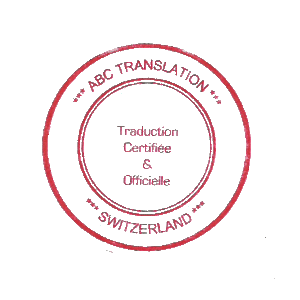Legalization
Legalization involves verifying the authenticity of a document issued in one country so that it is recognized in another. This process confirms the signature, seal, or stamp on the document and ensures compliance with international legal frameworks. ABC Translation can provide any kind of legalization in most countries.
Types of Legalization Processes
- Notary Legalization
Notary legalization is often the first step in authenticating a document.
- What It Involves: A licensed notary public certifies the signature on a document or confirms that a copy matches the original.
- Common Uses: Power of attorney, contracts, affidavits, and certified copies of academic records.
- Global Practices:
- In the U.S., notaries are widely accessible, and their role is limited to certifying documents.
- In many European countries, notaries hold legal authority and are involved in preparing and certifying documents.
- Apostille Certification
An apostille is a simplified form of document legalization introduced by the Hague Apostille Convention of 1961.
- What It Does: The apostille certifies a document’s authenticity, allowing it to be used in other signatory countries without further legalization.
- Process:
- Issued by a designated authority (e.g., Secretary of State offices in the U.S., Ministry of Foreign Affairs in many countries).
- Affixed as a stamp or certificate to the original document.
- Examples of Use: Birth certificates, marriage certificates, court rulings, and educational diplomas for use abroad.
- Hague Convention Members: Over 120 countries, including France, Japan, and Brazil, recognize apostille certification.
- Consular Legalization
For countries not part of the Hague Convention, consular legalization is required. This process involves verification at multiple levels, culminating in certification by the embassy or consulate of the destination country.
- What It Entails: Documents undergo a step-by-step authentication process before reaching the consulate.
- The Process:
- Local Notary Verification: A notary public authenticates the document’s signature or certifies a copy.
- Certification by a Government Authority: This often involves the Ministry of Justice or a similar body certifying the notary’s authority.
- Ministry of Foreign Affairs Authentication: The Ministry of Foreign Affairs (MOFA) in the issuing country verifies the document’s legitimacy.
- Final Legalization at the Embassy or Consulate:
- The destination country’s embassy or consulate reviews the document and affixes a legalization stamp or certificate.
- This step ensures the document complies with the destination country’s legal standards.
- Examples of Non-Hague Countries: the UAE, and Saudi Arabia require consular legalization for documents like marriage certificates, work permits, and business contracts.
The Role of Embassies and Consulates
Embassies and consulates are pivotal in the legalization process for non-Hague countries. Their role includes:
- Final Authentication: Ensuring the document adheres to the destination country’s requirements.
- Verification of Supporting Documents: Consulates may require additional evidence, such as a passport copy or proof of the document’s purpose.
- Fees and Processing Times: Consular legalization often involves fees, and processing times can vary depending on the embassy or consulate.
Additional Steps at Embassies and Consulates
- Pre-Appointment Requirements: Many consulates require applicants to book an appointment and submit documents online before the visit.
- Supporting Documentation: Applicants may need to provide:
- Copies of their ID or passport.
- Proof of residency or intent to use the document in the destination country.
- Physical Submission: In most cases, the document must be physically submitted to the consulate.
- Legalization Issuance: Once reviewed, the consulate affixes a legalization stamp or certificate, marking the final step in the process.
Key Documents Often Legalized
- Personal Documents:
- Birth certificates, marriage certificates, divorce decrees, and adoption papers.
- Academic Documents:
- Diplomas, transcripts, and letters of recommendation.
- Business Documents:
- Articles of incorporation, contracts, and intellectual property registrations.
Global Overview of Legalization Practices
Countries Using Apostille
- Most Western nations, such as the U.S., EU member states, and Australia, rely on apostille certification for streamlined cross-border document use.
Non-Apostille Countries
- Nations like Thailand and the UAE require more rigorous consular legalizations, involving multiple steps to verify authenticity.
Regional Differences
- European Union: The EU benefits from mutual recognition agreements, simplifying the need for legalizations within its borders.
- Middle East: Countries like Qatar and Saudi Arabia mandate strict consular legalizations, particularly for work visas and business-related documents.
Why Legalization Matters
Document legalization ensures:
- Authenticity: Prevents fraud by verifying genuine documents.
- Recognition: Enables smooth cross-border legal and administrative processes.
- Compliance: Satisfies international legal requirements for personal, academic, and business activities.
Conclusion
Document legalization, whether through notary certification, apostille, or consular processes, is a vital step in ensuring international recognition of official papers. Embassies and consulates play a key role in non-Hague countries, offering the final seal of approval to authenticate documents. Understanding these processes and requirements ensures compliance and smooth international interactions. As globalization increases, navigating legalization frameworks becomes essential for individuals and businesses alike.






